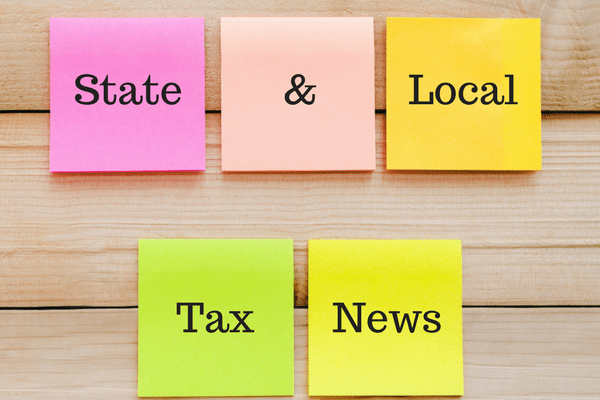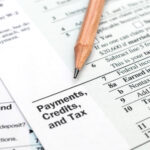By Terry Barrett, CPA, Tax Senior Manager

In recent years, the states have wrestled with out-of-state and Internet sales and how to tax them. The U.S. Supreme Court ruled in Quill Corp. v. North Dakota back in 1992 that a seller must have physical presence in a state in order for the state to subject that seller to state sales/use tax registration and collection requirements. On April 17th, the U.S. Supreme Court revisited the physical presence requirement in South Dakota v. Wayfair, Inc., Docket No. 17-494, for which we have provided more information here. The stakes are high and state/local governments and online sellers alike have much interest in the Court’s decision which is expected mid to late June. We are monitoring this case and will be providing more information as it becomes available.
Until the physical v. economic presence issue is resolved, there still are state compliance issues to consider. As noted above, historically unless an Internet or out-of-state seller has had physical presence in a state it generally has not been required to collect sales tax on sales to customers in the state. Ever since the Quill decision and more recently with the huge popularity of online commerce, states have attempted various approaches to have sales/use tax paid over to the states. While many have pursued tax collection requirements from sellers due to physical connections in sometimes creative ways, some states have gone the route of requiring out-of-state sellers to notify in-state customers of their use tax reporting requirements and then seeking payment of use tax from the customers.
Use Tax Rules
The rules for use tax are very similar to sales tax, other than who has the responsibility for remitting the tax. Use tax is a tax that a person, individual or business, is required to pay on taxable goods and services when the seller does not collect the sales/use tax from them. Businesses frequently are audited for use tax and states more recently have begun pursuing payment of the taxes from individuals. Note the question on the individual income tax return about online purchases and use tax that may be due by the purchaser. A few states (e.g., Connecticut) have obtained customer information from several online sellers who did not collect their state’s tax and have mailed those in-state customers letters that they owe use tax. The states’ ability to collect use tax from consumers on untaxed purchases is not new – it has been the law ever since sales and use taxes were enacted.
With state notice and reporting requirements the focus is having the online sellers notify customers of their use tax payment requirements and providing information to the states about sales to those customers so the states can then pursue the tax from the purchasers. While a burden is placed on sellers to provide the requisite notices and reports to customers and the taxing jurisdictions, the burden of paying the tax directly to the taxing jurisdiction is placed on the purchasers, the instate residents.
State Legislation
Beginning April 1, Pennsylvania became the twelfth state to impose such notice and reporting requirements. The legislation gives those online sellers, sales referrers, and marketplace sellers/facilitators who do not have a physical location in the state an option — register and collect the tax on sales to instate customers, or comply with very specific notice and reporting requirements. The law essentially requires those out-of-state sellers with $10,000 in total sales into the state in the prior year to post notices on their websites and invoices informing their customers that their purchases may be subject to use tax. It also requires the sellers to send their customers a notice at the end of the year regarding their purchases as well as the customer’s responsibility to report and pay use tax on their own. Notices are also required to be sent to the Department of Revenue regarding the names, addresses, amount of purchases and other information that will enable the Department of Revenue to pursue the payment of tax from the customers. The other states with some type of notice and reporting requirements include Alabama, Colorado, Kentucky, Louisiana, Oklahoma, Rhode Island, South Carolina, South Dakota, Tennessee, Vermont, and Washington. If you are selling over the Internet, by mail-order, or otherwise to customers in a state, you may be subject to the various state notice and reporting requirements. Many of the states may impose penalties for failing to comply with the requirements, thus these laws should be taken seriously.
Pennsylvania’s legislation also requires marketplace facilitators (such as Amazon or others who list, sell, collect payment from purchasers and remit such to third-party sellers through their marketplaces) with a physical presence in the state to collect Pennsylvania sales tax on all sales through their marketplaces. Amazon has been collecting sales tax on its own sales in all states; however, this legislation requires it (and other facilitators) to collect the tax on sales by third parties as well. Washington State enacted legislation similar to Pennsylvania’s effective January 1; two other states, Minnesota and Rhode Island, passed marketplace facilitator legislation in 2017.
With the Supreme Court expected to issue its opinion on the Wayfair case in late June we may find that some of the states’ efforts to enforce use tax compliance, particularly on individual consumers, may be a thing of the past (if sellers are required to collect the tax) or it may be the focus of more state efforts. It appears from very recent legislation passed, it may continue to be a focus. In the past month, both Georgia and Oklahoma passed notice and reporting requirements for remote sellers. The Oklahoma provisions were effective April 10, 2018 and the Georgia provisions will become effective 1/1/2019.
We will continue to monitor and provide updates on states’ efforts to increase tax compliance whether by sellers or purchasers. Stay tuned!
Questions on the potential changes facing sales and use taxes? We can help. Contact a member of the State and Local Tax team or Email | 804.747.0000
Additional Sales and Use Tax Resources:
Virginia Ruling on Inventory in Amazon Fulfillment Centers
Sales Tax – New Rules on the Horizon?
General Assembly Tackles Tax Issues
Potential Sales Use Tax Changes Impact on Virginia Businesses
Supreme Court Rules Against Wayfair; States May Require Online Sales Tax Collection
About the Author
The information contained within this article is provided for informational purposes only and is current as of the date published. Online readers are advised not to act upon this information without seeking the service of a professional accountant, as this article is not a substitute for obtaining accounting, tax, or financial advice from a professional accountant.



